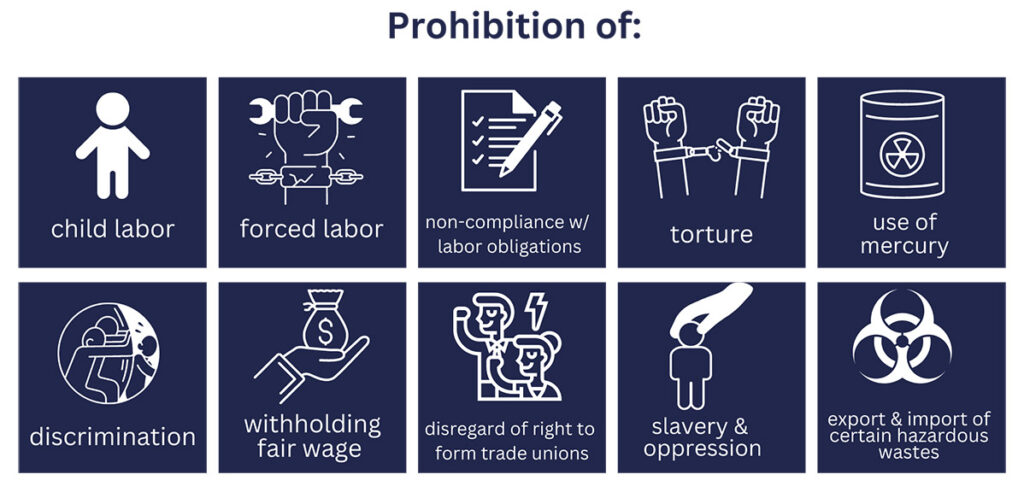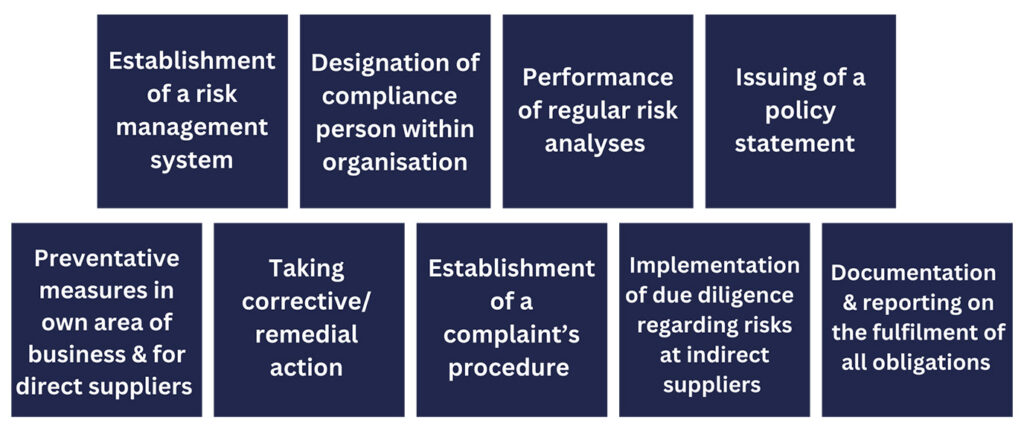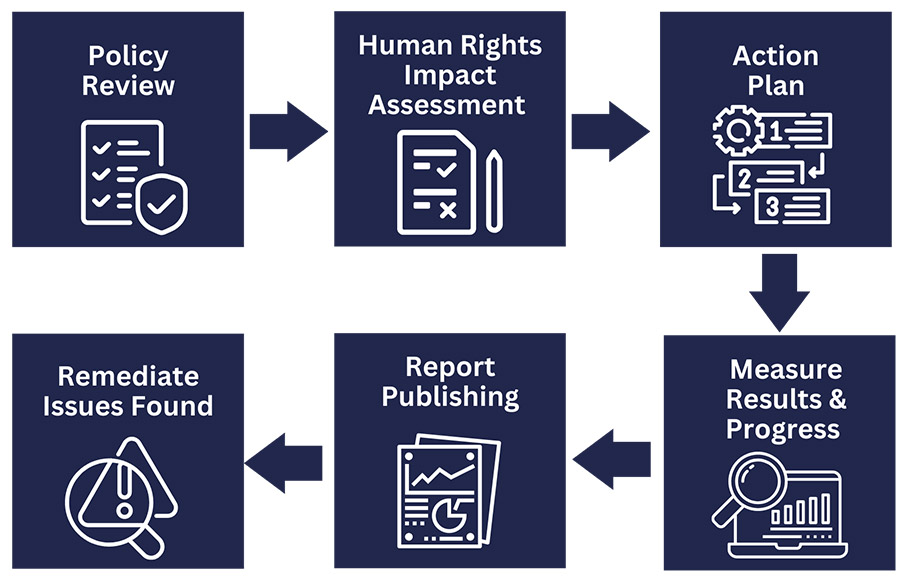At the ICTI Ethical Toy Program (IETP), we closely monitor changing global regulations, especially when these changes apply to labor standards and environmental risks. Our goal is to provide our members, and the toy industry in general, with the tools to stay compliant regardless of where they conduct business. One of the more recent regulatory acts to take effect is the German Corporate Due Diligence Obligations in Supply Chains Act (LkSG).
The LkSG came into effect in January, applying to any company that is based in Germany or has German-registered branches (i.e. their central administration, their principal place of business, their administrative headquarters, their statutory seat, or whose domestic branch office is based in Germany) and has at least 3,000 employees in Germany — including employees posted abroad.
Beginning on Jan. 1, 2024, the act will expand to become mandatory for all companies with more than 1,000 employees in Germany. Although it does not require direct compliance from smaller companies, many will feel the effect since they contribute to the supply chain of larger organizations. Companies in the supply chain will likely be required to report on their performance and impact relating to human rights and environment-related risks. We understand that due diligence obligations are now more frequently required in contractual relationships.

The act covers due diligence obligations relating to human rights and environmental risks and violations, including child labor, forced labor, non-compliance with labor obligations, torture, use of mercury, discrimination, withholding fair wages, disregarding the right to form trade unions, slavery and oppression, and the import and export of certain types of hazardous wastes.
The act essentially requires companies to establish processes for identifying, assessing, preventing, and resolving human rights and environmental risks in their supply chains and their own operations. They must also ensure they provide a grievance mechanism accessible to employees of both direct and indirect suppliers to file complaints alerting the company to human rights or environmental violations. Companies must therefore integrate due diligence obligations into corporate policies.

Make Sure You’re Compliant
In order to ensure your compliance with the act, you should first review your current policy, looking at how you can embed responsible business conduct into your policies and management systems. Then, through conducting a Human Rights Impact Assessment, you will be able to assess the current and potential adverse human rights impacts of your organization. Companies can integrate these findings into an action plan that will allow them to summarize their findings and take action where appropriate. It is important that companies track the progress and conclusions of this action plan by publishing reports to communicate how they are addressing identified adverse impacts. Finally, it is important to remediate any issues found, when appropriate. By following these steps, companies will have greater oversight into the adverse impacts of their business activities and will have tangible data to publish, report, and communicate.

IETP Can Help Your Business
IETP’s program helps businesses of all sizes gain visibility of their supply chain. We manage compliance risks, remediate issues, and produce valuable supply chain data for reporting purposes. Members of IETP are equipped to meet all eight of the core obligations of the act through our programs, such as Factory Certification, Social Impact Assessment, and Environmental Assessment. Some ways our program helps businesses to comply include IETP supplier mapping, risk mapping, supplier risk management, the Compulsory Grievance Mechanism, data for reporting, and remediation of issues.
Contact IETP’s Head of Business Development Todd Merton at todd.merton@ethicaltoyprogram.org to find out how IETP can help your business comply with upcoming supply chain legislation. Learn more about IETP at ethical.toys.
A version of this article was originally published in the 2023 Classics & Specialty Issue of The Toy Book. Click here to read the full issue! Want to receive The Toy Book in print? Click here for subscription options!

